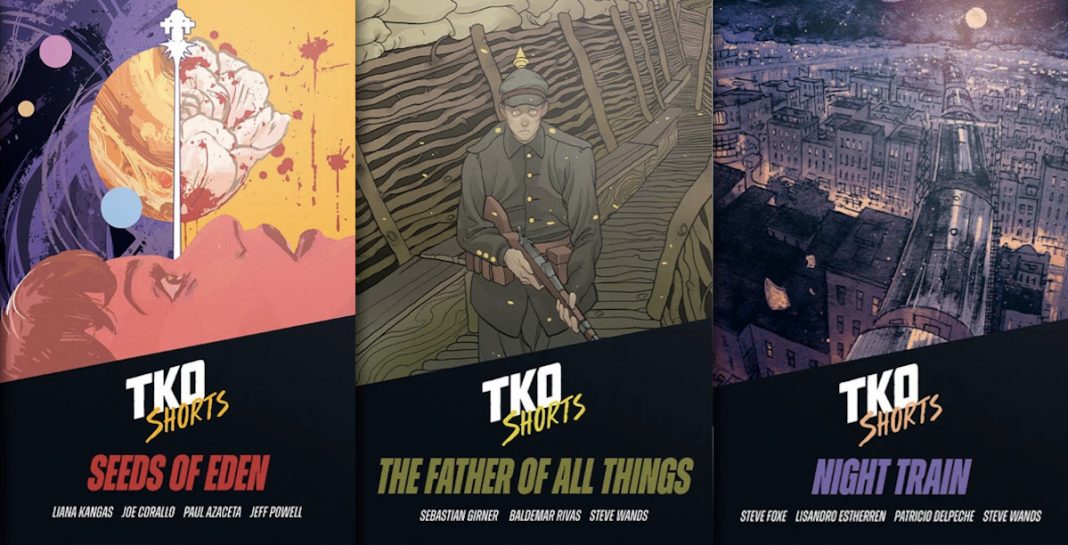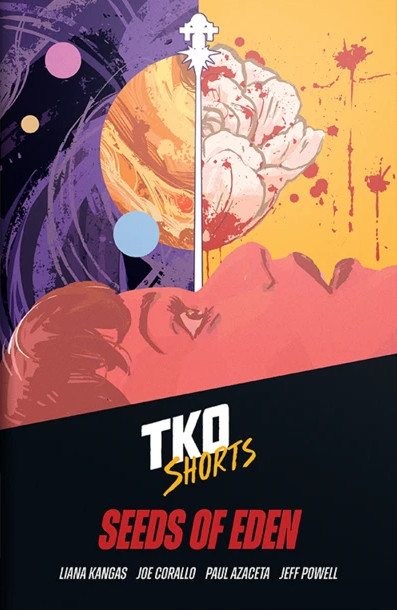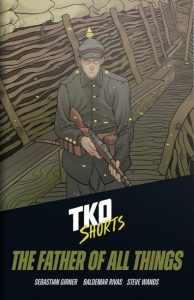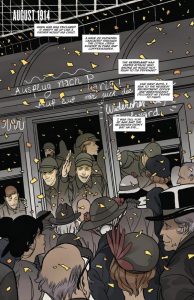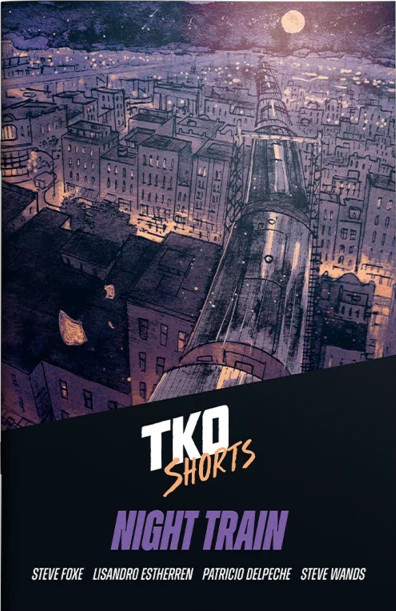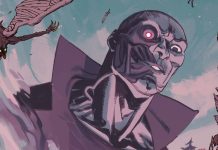The third wave of TKO Studios titles comes with a surprise. In addition to three longer stories, available like all other TKO titles have been as either six-issue miniseries or collected editions, the publisher also released a trio of Knockout Shorts. These zine-sized mini-comics feature self-contained stories of various genres and, as a fan of both short stories and the zine format, I was excited to check these out. I’m happy to say they didn’t disappoint.
Each Knockout Short is twenty pages long; twelve-to-fourteen story pages with the remaining pages showcasing concept sketches and process art from the making of the issue. Despite the shortened length, none of these mini-comics feel slight or unfinished. The trick with a short story is always in knowing how late in the action to begin and how early to end. Each of these comics thread that needle exceptionally well, bringing readers into stories already in progress and providing enough information so that they won’t be lost without overloading things with exposition.
All three of the TKO Shorts feature some element of horror, which works particularly well for the short form stories. Short 001, Seeds of Eden, is a sci-fi thriller about a scientist, Elaine, who arrives at a colony on Jupiter to find it apparently deserted. Liana Kangas and Joe Corallo’s script, a conversation between Elaine and the colony’s artificial intelligence, is tightly crafted, relaying background information without feeling unnatural and revealing elements of Elaine’s character cleverly and clearly. Jeff Powell’s lettering does some strong storytelling throughout as well, with distinct styles for Elaine, the colony’s AI, and the occasional chipper automated messages that juxtapose the horror of what’s happened.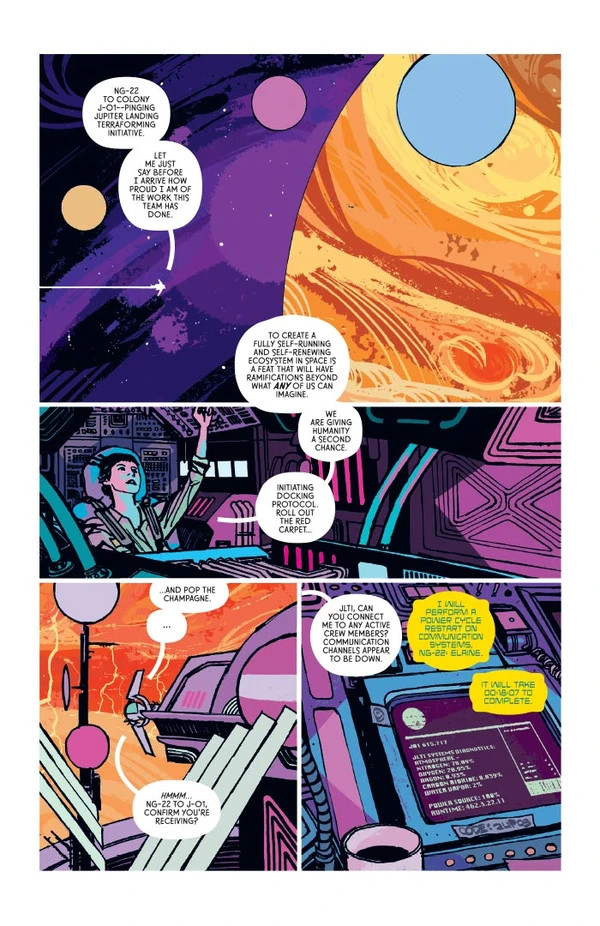
Short 002, The Father of All Things, is by writer Sebastian Girner, artist Baldemar Rivas, and letterer Steve Wands. The story follows Georg, a German soldier during World War I, as he explores a strange tunnel that appears in one of the army’s trenches. Aside from a twist towards the end, the story in this one was somewhat predictable, though very well-told by all involved. Rivas’s art in particular is fantastic. His storytelling is exceptional, particularly once Georg reemerges from the tunnel; his coloring work during that sequence is particularly striking and jarring in comparison to the pages that came before it. Of the three Knockout Shorts, this one was, for me, the weakest, but by no means was it bad or unenjoyable. It’s more a statement on the strength of the other books that this really solid story felt like it came up a little short.
The third and final short, Night Train, is probably my favorite of the bunch. Written by Steve Foxe with art by Lisandro Estherren and Patricio Delpeche and letters by Wands, this book is less overtly horrific than the other two, but what it lacks in grotesquerie it more than makes up for in mood. Foxe’s script, largely reflective narration from Neal, the story’s lead character, establishes the tone of the tale early and is almost hypnotic in the way it pulls the reader in and reveals the character and his story. Neal and his family are instantly relatable, and the allusions within the narration to what Neal does as the issue progresses are tantalizing. Once the reveal is made, new questions arise that continue to push the reader forward, until an ending that feels inevitable and entirely satisfying while still leaving plenty of room for interpretation.
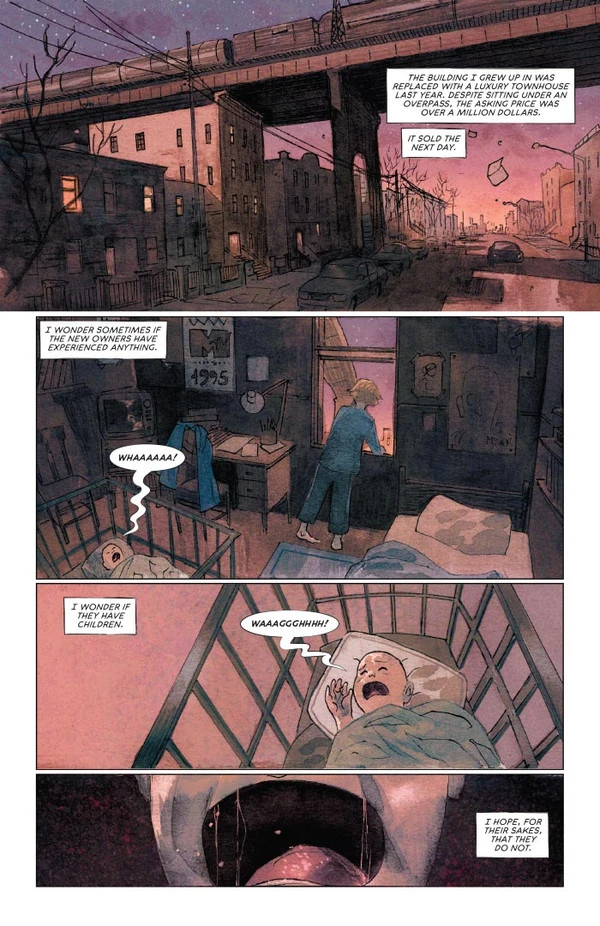
All three of the TKO Knockout Shorts are entertaining, satisfying reads. It’s nice to see TKO experimenting with format a little more, especially with shorter stories like these that might not have otherwise fit into their typical offerings. At $2.99 apiece, they’re also fairly reasonably priced, particularly for full-color zines with limited print runs. Hopefully, we’ll continue to see TKO using their unique business model to try new things like this in the future.
All three TKO Knockout Shorts are available for purchase now.


